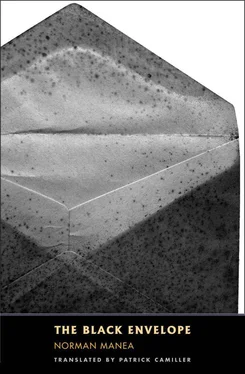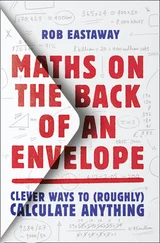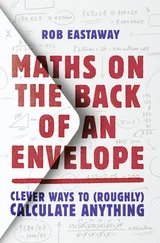Finally, the ghost of the last patient: the shy, delicate teenager lost in books, a perfect copy of Tolea a millennium before. He cannot pull himself together after the bicycle accident and the disappearance of philosopher-wineseller Marcu Vancea and the trial over that road accident with the old wreck of a woman, and the trial to expel the teacher he had become, and the trial of the times of life passing too quickly, which suddenly jumbles together trials, punishments, and boredom.
There they are: the assorted extras of the great farce. Men, women, children, soldiers, priests, vagabonds, peasants, prostitutes, ministers, gravediggers, engineers, poets, every category of mask and substitute, the great silent army of the vanquished, the patients, the last relics of normality unmasked by fate’s thunderbolt and incapable of remaining indifferent, refusing health and indifference and normality.
How to recognize them? They come and pass hurriedly by him, always hurriedly, looking at the ground and wearing the mask of tired children.
A provocative spring afternoon. The streets are full of the childish smiles of the patients he has met there, in the waiting rooms of truth. Bearers of the peculiar incubation or madness, handsome lunatics of the great disasters, the salt of the earth, the last knights of normality, as Dr. Marga says. Intricate codes, nightmares, headaches, visions, tears, fainting fits — of normality; all of them, maintains the lunatic who acts the healer of lunatics.
How shall I recognize them, stop them, go home with them so that at least for that evening I am theirs, with them — so that I can gather them together, one and one more, and we can send word to everyone: this night, our night! Our night: all crammed in a vast groan that soon becomes a roar — hysteria, laughter, our laughter, our infinite planetary roar that not even the sky can encompass. Our humble, proud, incurable solidarity: normal people! That’s all, the nobility of the last sick people capable of recording the world’s disorder, the tearing and the gnashing of teeth, unknown to those who break their back maintaining the rhythm of the play that is continually in search of its end. And friend Marga wastes his time with us wretches, schizophrenic orphans on a schizophrenic planet. If he thought about it, he, Tolea, the schizophrenic orphan, was almost the same age as Mr. Marcu Vancea, whom the Great Scriptwriter in the sky drove to his death one spring night forty years ago. All of a sudden he went rambling through streets and through fields beyond them, killed or killing himself — who knows anymore? — in the hypnosis of that black spring night.
Suicide or perhaps murder, who can say? and what would be the point anyway except for his Argentinian brother, who did not run far enough, since he could be reached there, too, in the nostalgia of senility, reminiscing about their father floating in the sewers of a town devastated by terror. And so the memories reached his paralytic Argentinian brother — memories of those far-off days when he went to buy himself some white wedding gloves, while his father’s corpse floated down as a gift to the cesspool collectors at the sewer’s mouth, among all the city’s waste matter.
If, on this young spring night, he were to gather together all the patient-brothers — hundreds, a thousand, several thousand — each with a torch in his hand on the slope that protects the collectors’ trough up to the exit into the cold black river, so that for a moment he could look at each one, hundreds, a thousand, looking for a moment at each one, just for a moment. In the end he would recognize that one from long ago — yes, he would remember one like that. Time, in its cyclical movement, reproduces such markings to near-perfection; the map of human suffering must surely repeat such features.
He would recognize Marcu Vancea as he was forty years ago. He would read the warning on his mask of a frightened, hunted, aged child. He would be able to take a good look at him, as he didn’t have time to do then, and even forewarn him — what for? No, I wouldn’t warn him, I’d just examine the hasty way of doing the preliminaries, the rough sketch for a real study in simulation up to or rather beyond the fatal threshold, so that Señor Claudiu could see how conscientious was the slave paid with those wretched dollars of his, which had passed across two oceans and twenty seas and two hundred hands before reaching the noncounting account, because that’s how Anatol is, always unlucky and loony and penniless, like his crazy country, in which there is not a penny and never any good luck.
Off the boulevard to the right, then again to the right. A quiet cross street. Trees, unheard buzzing, shadowy silence. The heavy iron gate, solemn steps. A princely building, bolts, lancet arches, stone wood steel, austere windows, pillars, and chandeliers, surely we know the decor. He pressed the doorbell on which the name Dr. Marga was written. Would Auntie Jeny already be standing hidden behind the door, a patient now the doctor’s nurse? Would she be waiting as usual on the other side?
“I’ve brought you a flower, Granny. A yellow carnation — I couldn’t find any roses. Because, you know, there are no longer any flowers in this country, except for heroes.”
“Oh, poor me! You’re the only one who keeps this black soul of mine going”—and she would wipe the palms of her hands on her blue shorts, again and again, and then suddenly bend from the waist to kiss her benefactor’s hand.
“What are you doing? I’ve told you before I’m not the Pope. Come on now, stop groveling like that: let’s sing that doina which you say tears you apart and puts you together again”—and the young gentleman Anatol would look hard at old Jeny so as not to forget her black, unsocketed eyes, her pale, puffy cheeks, her stumpy hands shaking all the time as if from the cold. Let’s go, Madame Hyperthyroid, stop laughing like a fool and let’s sing that doina that will set your soul aright. Don’t put your hand to your mouth when you laugh, Madame Parkinson; stop blushing when you laugh — it’s not your teeth that are the problem. You may have teeth missing, but that’s not what you’re covering up. It’s because of what the exploiting classes got you used to — they haven’t disappeared, you know, far from it.” The young gentleman Anatol would sit on the carpet, as Auntie Jeny closed her eyes in the armchair. Oh, darling Johnny , the song began.
A wafer-thin voice, a frail child, a barely noticeable trace, beneath bushy black eyebrows.
Oh, darling Johnny,
would that I could sow your name
Her rough hand stroking the orphan’s bald patch. Slowly her voice rises, slowly and thinly the song’s tear falls: Oh, darling Johnny, would that I could sow your name in every garden … in every garden … so its sweet smell … reaches every pretty belle . It went on and on until, as usual, bedlam broke loose. Tolea leaped to his feet screaming Rock Rock Rock Again : twisting dizziness shouting, until he whirled the patient into the kitchen— Right, let me see the moussaka! “Right, let me see the moussaka! That’s not pepper: it’s those green sleeping tablets. And those other ones are for dreams, and the others for the dead. Don’t you worry, I know it all right.” Rock Rock Rock Again , so that the plates and forks and saucepan and jars, and the table full of remedies spices syrups all quiver and shake for the greatest suffering of all, as great as the garden of the Mad Lord, because this is my fate, sweetheart, that I can find peace here only thanks to the doctor’s kindness, bless his soul.
Nothing to be heard: not a sound. As if no one is in, not even the patient acting as governess. So Mr. Anatol Vancea Voinov rings again, for a long time.
Читать дальше












